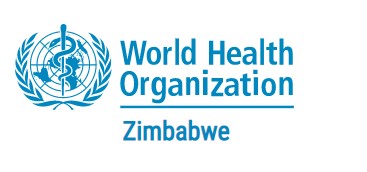Sheba Usanda, a dedicated community health promoter (CHP) at Zengeza Clinic since 2010, recently participated in vital training sessions on cholera prevention and control. The training served as a reminder that cholera, despite being controlled to some extent, continues to pose a significant threat, especially in hotspot areas like Chitungwiza. Armed with renewed knowledge and strategies, Sheba is poised to share this vital information with her community, which is in one of the country's main cholera hotspots.
The main objective of the training was to equip communities with effective cholera prevention and control practices to mitigate the disease's morbidity and mortality rates. The workshop also intended to prepare the health promoters for the upcoming rapid behavioral risk assessment in numerous hotspots, including Chitungwiza, Harare, Buhera, Mutare rural, and Gutu.
"Now, I'm equipped with critical knowledge, such as how to prepare a salt and sugar solution and identify the signs and symptoms of cholera. In my community, many people are unaware and tend to stay home when infected. With this new understanding, I can empower my community to recognize symptoms early and get prompt medical care, potentially saving lives," Sheba expressed.
Sheba is among the 120 community health promoters who recently underwent training on cholera prevention and control. This initiative is a part of the Zimbabwe Ministry of Health and Child Care's (MoHCC) targeted response to the ongoing cholera outbreak, with the support of the World Health Organization (WHO). The two-day training event, held at the Chitungwiza City Council from 22 - 23 November, drew health promoters from various wards in Chitungwiza.
“Our goal is not just to respond to the cholera outbreak but to equip our communities with the knowledge and tools they need to prevent future outbreaks. This training is a pivotal step in that direction,” said MoHCC, Health Promotion Manager Mr Paul Chinakidzwa during the training.
As part, WHO Zimbabwe support, over 10,000 posters were donated to MoHCC for the health promoters to distribute in their communities to enhance awareness of cholera prevention. Post-training, these promoters are expected to disseminate their knowledge in their respective communities and assist in conducting the upcoming rapid assessment.
The training and subsequent community engagement activities form part of WHO’s emergency response program to the ongoing cholera outbreak. The program emphasizes Risk Communication and Community Engagement (RCCE), which is pivotal in fostering community awareness and promoting the uptake of cholera prevention measures.
Risk Communication and Community Engagement (RCCE) play an important role in advocacy, communication, and social mobilization for the uptake of cholera public health and social measures. Comprehensive cholera awareness initiatives, including interpersonal communication, are essential to address the needs of individuals, families, and communities for cholera prevention and control.
"We are committed to supporting Zimbabwe's efforts in combating cholera. By empowering community health promoters like Sheba, we are taking significant strides towards improved community health and resilience,” said WHO Zimbabwe, RCCEE Officer Mrs Priscilla Mangwiro.
During the cholera outbreak WHO Zimbabwe has been supporting the MoHCC to implement health promotion initiatives aimed at preventing and controlling cholera outbreaks. These initiatives include fostering stakeholder engagement, particularly with interfaith organizations of traditional and religious leaders; developing and reviewing strategy documents and evidence generation tools; training health promotion officers, community health workers, and promoters; raising awareness through interpersonal communication during door-to-door engagement and community dialogues; conducting mobile awareness campaigns using loudspeakers and roadshows in high-burden areas; designing, printing, and distributing Information Education and Communication (IEC) materials such as posters, fliers, and promotional items like T-shirts; and generating evidence to guide interventions.
Distributed by APO Group on behalf of World Health Organzation (WHO) - Zimbabwe.
Latest Stories
-
Seeds are more expensive than gold – Netherlands Ambassador calls for collective action on Agrobiodiversity
8 mins -
Grandad Sings: The 92-year-old TikTok sensation
31 mins -
‘No-one will win’: Canada, Mexico and China respond to Trump tariff threats
49 mins -
Kenya less open to visitors despite visa-free policy – report
1 hour -
New Mauritius PM has reservations about UK’s Chagos deal
1 hour -
Trump picks Covid lockdown critic to lead top health agency
1 hour -
Drake takes legal action over Kendrick Lamar’s Not Like Us
2 hours -
We’re too boring for kids for social media ban – LinkedIn tells court
2 hours -
2024 All Africa Challenge Trophy: Morocco to host Women’s Golf event slated for November 28
3 hours -
Prosecutors demand 20-year jail sentence for husband in mass rape trial
4 hours -
Man City throw away 3-0 lead to draw with Feyenood
5 hours -
Ghanaians, your vote matters: Let us secure the future with Dr. Bawumia
5 hours -
Saka stars as Arsenal thrash Sporting
5 hours -
Black Queens friendlies against Senegal and Tunisia in limbo due to lack of $40k
5 hours -
Salah not distracted by contract talks – Slot
5 hours

